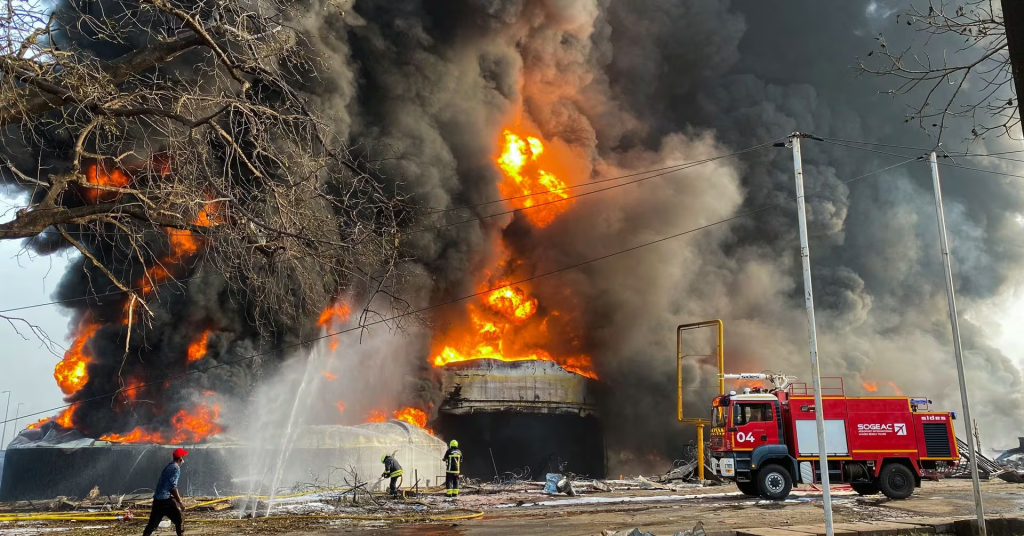Protests erupted in Guinea’s capital, Conakry, as clashes ensued between protesting youths and security forces. Demonstrators demanded the restoration of petrol supplies at service stations that had been suspended after a deadly explosion at the country’s main fuel depot.
Sporadic clashes unfolded on Thursday afternoon, with masked protesters setting up roadblocks, overturning bins, and burning tyres. Many protesters, who primarily operate motorbike taxis, called for the reopening of service stations for all types of fuel.
The government reported that a powerful explosion and fire on Monday at the state oil company’s main depot in Conakry killed 23 people and injured 241, revising the initial toll. Investigations are ongoing to determine if additional victims are missing.
Colonel Mamady Doumbouya, the head of the ruling junta following a 2021 coup, declared three days of national mourning starting Thursday. The incident damaged buildings, displaced residents, and led to the temporary closure of service stations across the country.
While the government announced the resumption of diesel fuel supplies, the distribution of petrol remains suspended, triggering frustration among protesters. They expressed their need to work and feed their families, emphasising that most Guineans rely on petrol.
Protesters shouted, “You can’t sell diesel and deprive us of petrol. We want the government to fulfil its obligations. If they don’t, they should get out.”
Traffic disruptions occurred as security forces intervened, and taxi drivers had to navigate carefully to avoid potential confrontations.
Meanwhile, rights groups raised concerns about restrictions on some privately owned media and social media during the crisis. Amnesty International’s director for West and Central Africa, Samira Daoud, criticised the violations of the right to freedom of expression and peaceful assembly, describing them as permanent in a press release.

